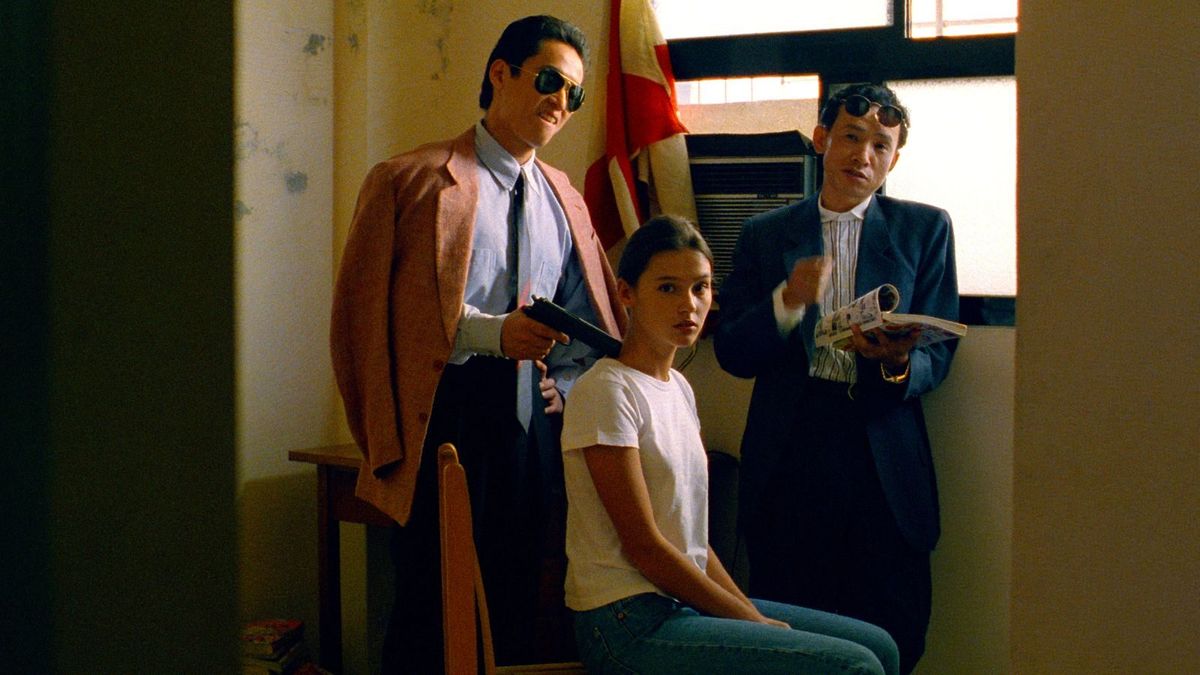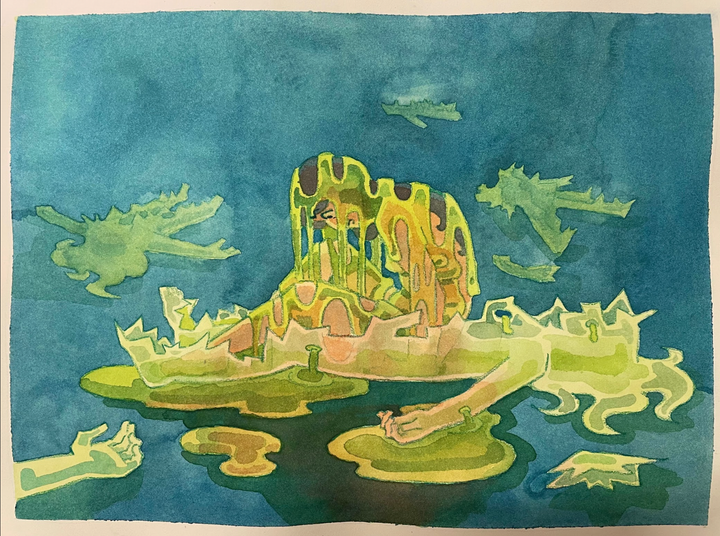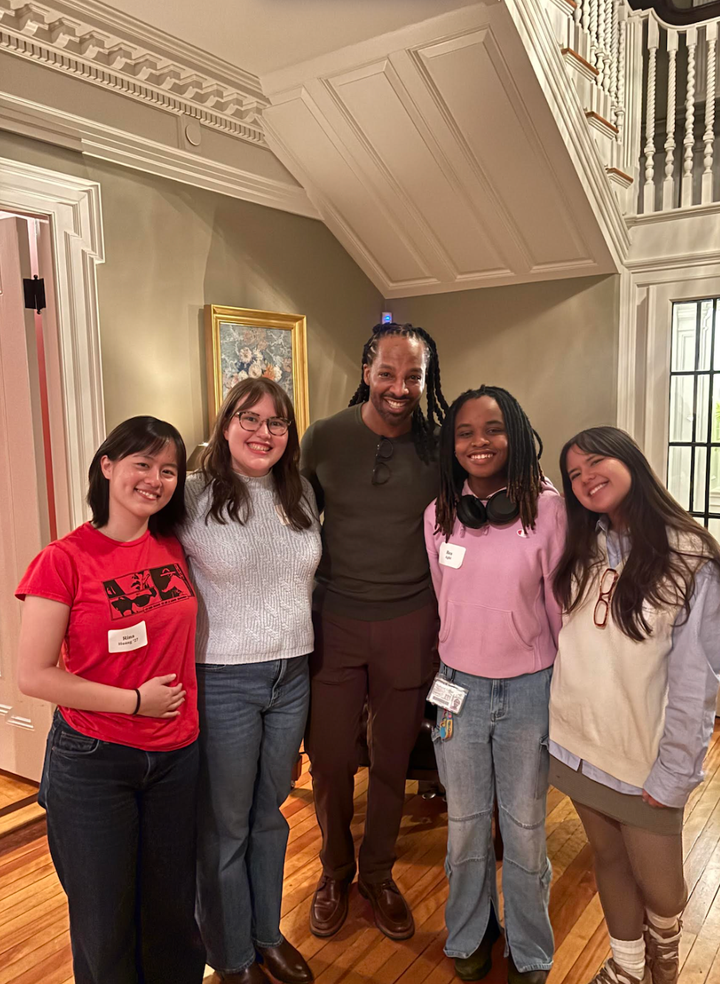Film Society x The Student: “Mahjong”
Ziji Zhou ’25 reviews Edward Yang’s crime drama “Mahjong,” highlighting its morally ambiguous characters and examination of 1990s Taipei.

Late in the evening in 1990s Taipei, tucked in the middle of the city, the Hard Rock Cafe hosted a meeting between a gay Malay hairdresser named Jay, a young man nicknamed “Hong Kong” who shares all his women with his housemates, a white woman, introduced as “Ginger,” who promoted herself from a prostitute to a pimpstress over the years she spent as an expat, and her current client, a forgettable and nameless Taiwanese businessman. Each one of them is caught up, in their own way, by the blistering pace of the social and economic changes in Taiwan.
Taiwanese director Edward Yang’s (杨德昌) 1996 film “Mahjong” (麻将) offers a glimpse into a city whose growth and prosperity came too fast for its people. Shown in a new 4K restoration (undertaken by the Taiwan Film and Audiovisual Institute) at Amherst Cinema on Feb. 27, it drew the largest crowd at the theater that I have personally seen, and unsurprisingly also the largest Asian crowd too. Yang’s sixth movie tackles the classic themes of Taiwanese New Wave cinema: Snapshots of ordinary people in changing, neocolonial, and cutthroat capitalist times.
“Mahjong” follows a group of friends as they make a living off of petty scams and intermingle with all classes of the city: The leader, Red Fish (Tang Cong Sheng / 唐从圣), whose jaded worldview was shaped by his absent father who disappeared after going hundreds of millions into debt; the aforementioned Hong Kong (Zhang Zhen / 张震), whose main responsibility is seducing girls either for the friends to share or for a scam; Little Buddha (Wang Qi Zan / 王启赞), a fake prophet; and newcomer Luen Luen (Ke Yu Lun / 柯宇纶), who possesses the most naivete and longs for connections to those around him.
The film splits into subplots following each of the friends, all centered around varying understandings of human connection. Luen Luen falls for a Parisian woman named Marthe (Virginie Ledoyen) and tries to find a place for them within their corrupt environment. He shields her from Ginger and Red Fish’s plots to pimp her out for profit. Hong Kong, with Little Buddha’s help, seduces a rich, older Hong Kong-ese woman to scam her out of her new apartment. Red Fish fights with a chip on his shoulder as he struggles with his vanished father, believing that “no one here knows what they want, they just want someone to tell them what they want, what they do.”
Flip-flopping between Mandarin, Hokkien, and English, the film’s angsty and vulgar dialogue is one of its strongest points. However, the English subtitles do struggle to keep up with some of the creativity of Chinese curse words, often simplifying them to their most basic form.
Themes, and often exact proverbs, are repeated by many characters throughout the film. Red Fish’s rant to his father is one of the highlights and reveals so much about his worldview: “The most important thing to a con, is to not use your emotions. For us to be as successful as we are, it’s become we never invoke our emotions.” Most characters have already become so jaded in their view of their world that only conniving utilitarianism remains. Despite being masked in absurdist humor at times, there are no emotions involved in the film, just manipulation and personal gain.
Like many Chinese films of the 90s, the griminess of the city is stylized yet not glamorized. “Mahjong” offers us dizzying views into all classes, from run-down hostels hosting expats and barren houses to the lavish apartments of businessmen who think they are higher than they actually are. The charm of the city is impressive and the bustle and seemingly never-ending opportunities for profit are enticing. Smoking, as is true in almost all movies set in cities solely illuminated by neon lights, becomes cool again.
At the core of “Mahjong” is an exploration of human connections. After all, what sort of connection is possible in this world? Friendships seem transactional, and sex certainly is. The friends strictly prohibit kissing, believing it brings bad luck — a testament to their pessimistic stance on romance.
Red Fish, traumatized from his father’s bankruptcy caused by a mistress, pretty much swears off all connections. Hong Kong, despite his frequent sex-capades, takes no emotional pleasure from any women, throwing out “I love you”s like stale candy. Eventually, after he is raped by the older women’s friends, he breaks down into a near-catatonic state, leaving the friends and the audience without any closure. The fight for survival, for prosperity, leaves no room for emotions. Real connections, like the love Luen Luen naively seeks from Marthe, are points of weakness, rendering you vulnerable to all those waiting to exploit you at any moment.
Hidden underneath the character’s entanglements lies the curious position 90s Taiwan faced with neocolonialism. A monologue from a British interior designer near the end of the film says it best: “These people have so much money stuffed up their ass, it’s so hard to believe. You know, in ten years, this place will be the center of the world. The future of Western civilization lies right here ... The 19th century was the Golden Age of imperialism right? Wait till you see the 21st.”
Do his words ring true? The power dynamics of the white characters (most of which had some terrible performances acting wise) are striking in the film. The snobbiness from those used to the city and Marthe’s optimistic presumptuousness towards its people all speak to the West’s neo-colonialist exploitation of the developing East.
Red Fish and his gang try to take control of it all, and yet everything falls apart piece by piece as they fly too close to the sun. The end of the movie shows Luen Luen, the only member somewhat unscathed from the events of the film, convincing Marthe to stay before giving her an impassioned kiss... Bad luck.




Comments ()